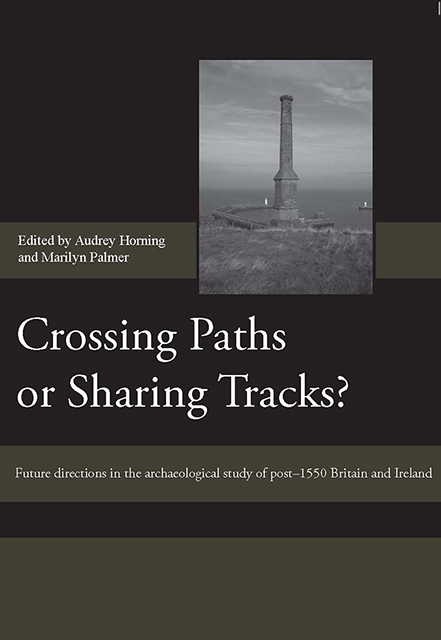 Crossing Paths or Sharing Tracks?
Crossing Paths or Sharing Tracks? ‘You Knew Where You Were’: An Archaeology of Working Households in Turn-of-Century Cheshire
Published online by Cambridge University Press: 07 March 2023
Summary
The Alderley Sandhills Project was designed to illuminate the transformative roles of industrialisation and de-industrialisation on the working households of rural England. By focusing on a domestic site, we sought to examine how the men, women and children of this ordinary working neighbourhood bothmaintained and improved their conditions of everyday life in the face of the rapid socioeconomic revolutions of the 18thto 20th centuries. Community outreach was an intrinsic component of this fieldwork programme, withproject participants including former residents and neighbours of the excavated cottages. Their oral histories provided a crucial source of information for understanding the social meanings of archaeological objects and places within the study site. Drawing from results of this narrative source, this chapter explores the material nature of class mobility and community life within the working households of Alderley Edge, Cheshire.
‘But I mean … I mean, that's just a family thing, you know.’ (Mrs Molly Pitcher, ASP Interviews, August 2003)
INTRODUCTION
Since its earliest years of practice, our discipline has maintained a long-standing tradition of ‘household archaeology’. Current directions have begun to explore the material implications of domestic sites as venues for labour, as arena for inter- and intra-gendered relations, and sites of consumption. These approaches have encouraged historical archaeologists to consider how the growing tide of mass-produced industrial commodities – the ‘stuff ’ of empire – inextricably transformed the ways ordinary people lived and worked within their own homes from the 18th century onwards.
Further, by recognising that the material world of a household operates simultaneously on multiple geographic scales, these studies have demonstrated how the familiar process of ‘making home’ is at once an internal and external dynamic, as also discussed by Charles Orser, this volume. It is both an experience of intimate social relationships, and a reflection of transnational economic forces. Accepting this paradox encourages us to ‘think globally, dig locally’ in order to grasp the material articulations of class mobility and community life within the archaeological household.
ON MEMORY AND MATERIALITY
Oral histories off er a powerful means for engaging withthis crucial dialectics of scale – for understanding how global products enter into regional domestic patterns, and how they inform local processes of community building and social belonging.
- Type
- Chapter
- Information
- Crossing Paths or Sharing Tracks?Future directions in the Archaeological Study of Post-1550 Britain and Ireland, pp. 365 - 380Publisher: Boydell & BrewerPrint publication year: 2009
- 3
- Cited by


